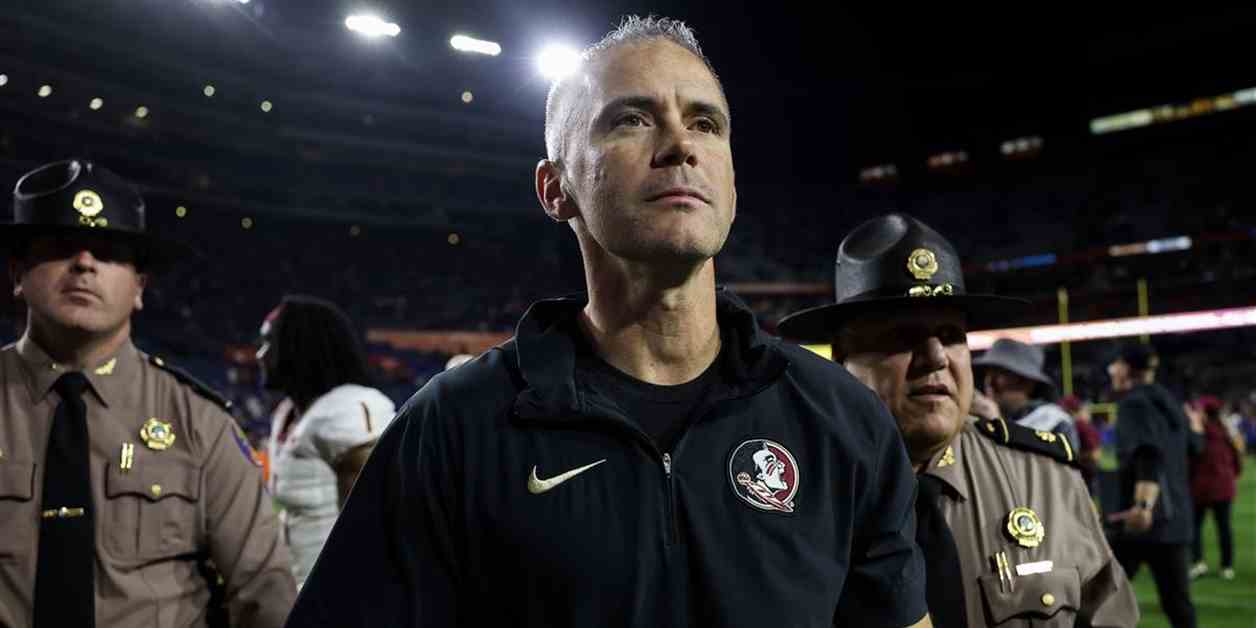ACC Football Power Rankings: Florida State, Miami Battle for No. 1 Spot in 2024 Summer Edition
Updating preseason ACC power rankings for the 2024 season, the future of the ACC itself remains uncertain as ongoing legal battles involving several members take place. However, that should not distract from what could prove to be a thrilling race for a conference championship in 2024. The league expands to 17 members this year with California, SMU, and Stanford set to officially join soon. But how much will those newcomers affect the ACC title race? Clemson, Florida State, and Miami expect to still be the top contenders in the ACC while also making a push for a spot in the expanded College Football Playoff.
As things stand less than 12 weeks out from the season opener, there is an obvious top-tier of contenders in the ACC, but several dark horses worth keeping an eye on. Below are the updated ACC college football power rankings for the 2024 season heading into the summer:
17. **Stanford Cardinal:** ACC newcomer Stanford faces an uphill climb back to bowl eligibility. The Cardinal defense does return each of its top four leading tacklers from last season but had one of the worst scoring defenses in the entire FBS, allowing 37.7 points per game.
16. **Virginia Cavaliers:** Virginia returns 14 players that started in at least six games last season. Injuries set Virginia back defensively in 2023, but coordinator John Rudzinski has much-needed depth to work with.
15. **Wake Forest Demon Deacons:** Wake Forest had a major setback in 2023 after consecutive eight-win seasons. Head coach Dave Clawson has an opportunity to get the team back on track in 2024 with an upgrade at quarterback with former Louisiana Tech transfer Hank Bachmeier.
14. **Boston College Eagles:** Bill O’Brien makes his return to the college level as the head coach for Boston College. The Eagles could face challenges on defense but have a strong offense led by returning starter Thomas Castellanos.
13. **Pittsburgh Panthers:** Pittsburgh had a tough season in 2023, but player development under head coach Pat Narduzzi will be crucial for the team’s success in 2024.
12. **Duke Blue Devils:** New head coach Manny Diaz aims to maintain momentum for Duke. The Blue Devils will rely on former Texas backup quarterback Maalik Murphy to lead the offense.
11. **Syracuse Orange:** Syracuse underwent a massive roster overhaul under new head coach Fran Brown. Former Ohio State quarterback Kyle McCord headlines the newcomers for the Orange.
10. **Georgia Tech Yellow Jackets:** Georgia Tech returns a significant number of starters in 2024 but still has concerns on the defensive side.
9. **California Golden Bears:** California could surprise as a newcomer in the ACC this season with strong offensive weapons.
8. **North Carolina Tar Heels:** North Carolina looks to improve defensively under new defensive coordinator Geoff Collins while relying on running back Omarion Hampton.
7. **SMU Mustangs:** SMU enters the ACC with high expectations after a successful season in the American Athletic Conference. The Mustangs have a strong offense led by quarterback Preston Stone.
6. **Louisville Cardinals:** Louisville projects to contend for an ACC championship again in 2024 with a reloaded roster under head coach Jeff Brohm.
5. **Virginia Tech Hokies:** Virginia Tech returns a significant number of starters and expects to have one of the best defensive lines in the ACC.
4. **NC State Wolfpack:** NC State looks to continue its consistent success under head coach Dave Doeren with an impressive offensive lineup.
3. **Clemson Tigers:** Clemson aims to reclaim the ACC title in 2024 with a strong defense and potential improvements on offense.
2. **Miami Hurricanes:** Miami makes significant upgrades through the transfer portal and looks to improve under third-year head coach Mario Cristobal.
1. **Florida State Seminoles:** Florida State enters the 2024 season as the favorite to win back-to-back conference titles with a reloaded roster via the transfer portal led by former Clemson and Oregon State quarterback DJ Uiagalelei.















